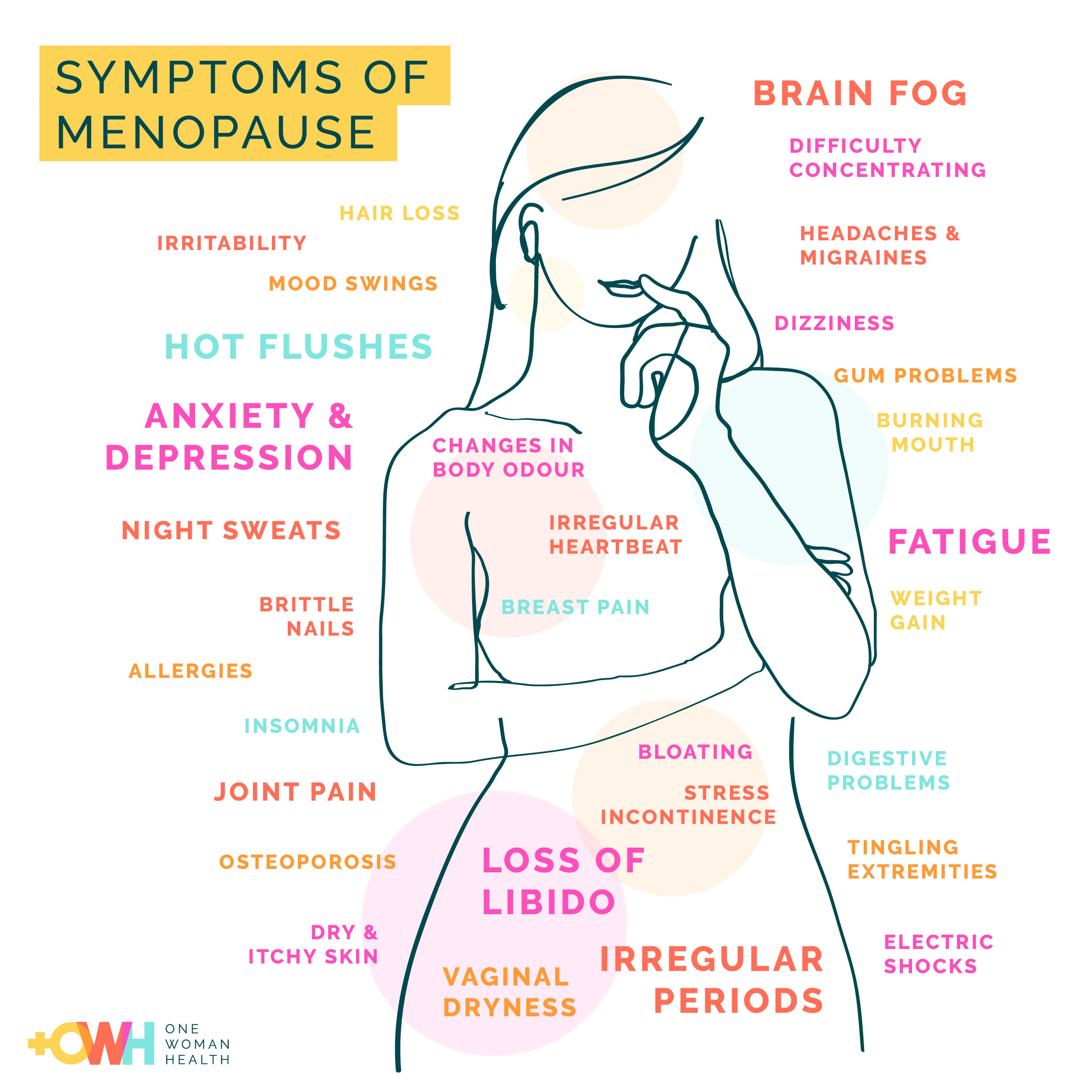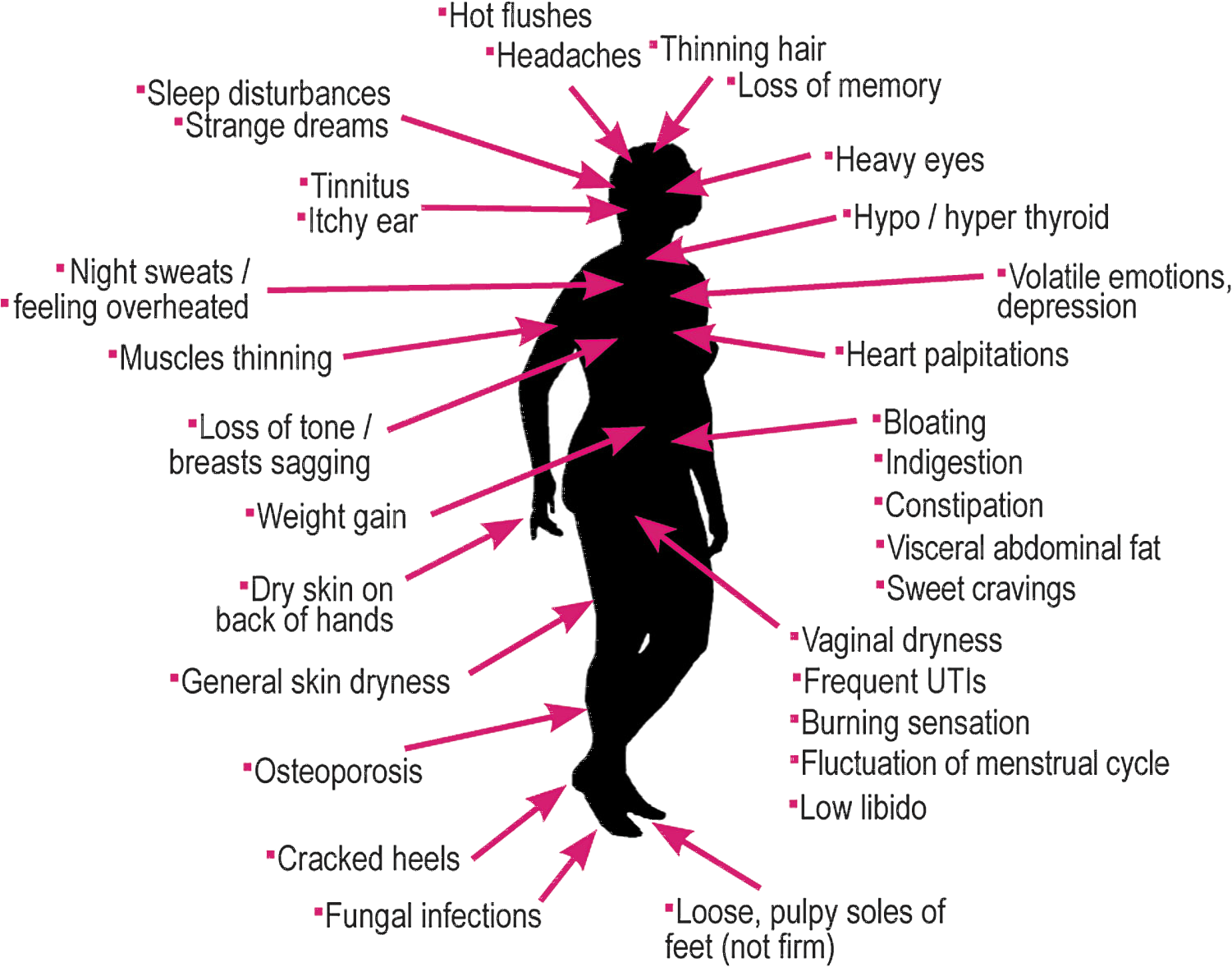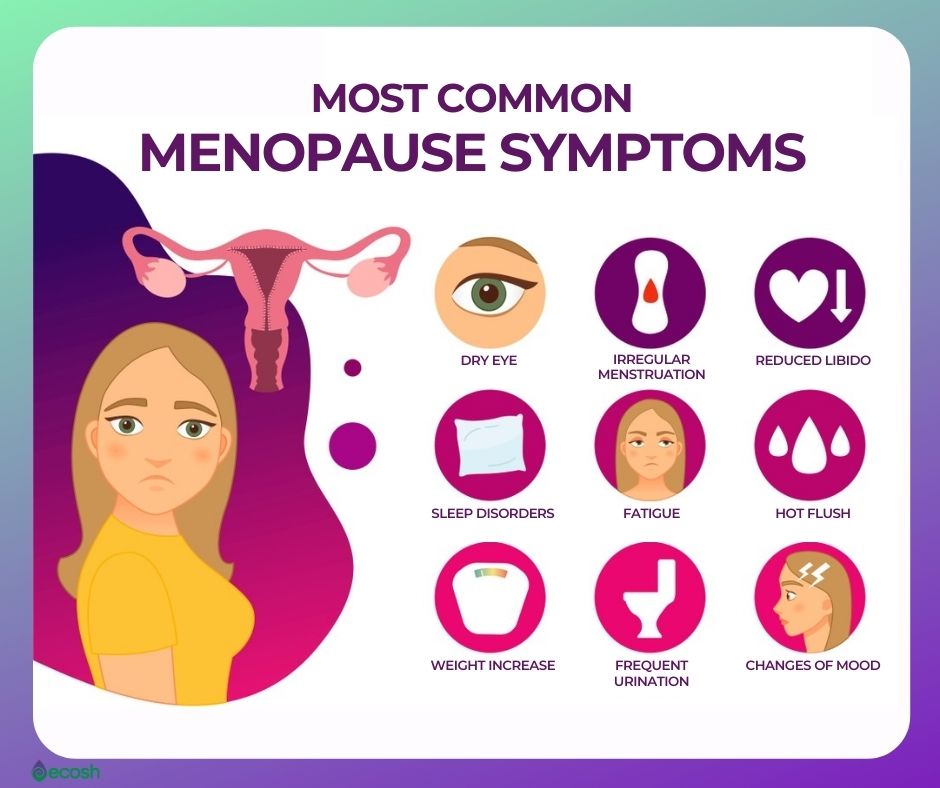Post menopause symptoms, a common experience for women, encompass a range of physical, psychological, and long-term health implications. This article delves into the complexities of this transition, exploring the hormonal changes that trigger these symptoms and providing guidance on managing them effectively.
As women enter post menopause, a natural decline in estrogen levels leads to a cascade of symptoms that can impact their overall well-being. Understanding these symptoms and their potential treatments is crucial for maintaining health and quality of life during this phase.
Overview of Post Menopause Symptoms
Post menopause is the stage in a woman’s life that occurs after she has not had a menstrual period for 12 consecutive months. It typically begins between the ages of 45 and 55, but can occur earlier or later.
During post menopause, the ovaries stop producing the hormones estrogen and progesterone. This hormonal change can lead to a variety of symptoms, including:
Hot Flashes and Night Sweats
Hot flashes are a sudden feeling of intense heat that spreads over the body, often accompanied by sweating and a rapid heartbeat. They can last for a few minutes or up to an hour.
Night sweats are similar to hot flashes, but they occur at night and can be disruptive to sleep.
Vaginal Dryness
Vaginal dryness is a common symptom of post menopause that can make intercourse painful. It is caused by a decrease in estrogen levels, which leads to a thinning of the vaginal walls.
Mood Swings and Irritability
Mood swings and irritability are also common symptoms of post menopause. They are thought to be caused by changes in hormone levels, as well as by the stress of dealing with other menopausal symptoms.
Sleep Disturbances
Sleep disturbances are another common symptom of post menopause. They can be caused by hot flashes, night sweats, mood swings, or other menopausal symptoms.
Osteoporosis
Osteoporosis is a condition that causes bones to become weak and brittle. It is more common in women after menopause because estrogen helps to protect bones.
Heart Disease
Heart disease is the leading cause of death in women over the age of 50. The risk of heart disease increases after menopause because estrogen helps to protect the heart.
Physical Symptoms
Post-menopause, the body undergoes significant hormonal changes that can lead to various physical symptoms. These symptoms can range from mild to severe and may impact daily life. Understanding the causes and potential treatments for these symptoms can help women manage their post-menopausal journey more effectively.
Common physical symptoms experienced during post-menopause include:
Hot Flashes and Night Sweats
Hot flashes are sudden feelings of intense heat that spread over the body, often accompanied by sweating. Night sweats are similar to hot flashes but occur during sleep, causing discomfort and disrupted sleep patterns. These symptoms are caused by fluctuations in estrogen levels, which affect the body’s temperature regulation system.
Treatment options include hormone replacement therapy (HRT), which can help stabilize estrogen levels and reduce the frequency and severity of hot flashes. Non-hormonal treatments include lifestyle modifications such as avoiding caffeine and alcohol, dressing in layers, and using cooling techniques like cold showers or fans.
Vaginal Dryness
Vaginal dryness is a common symptom of post-menopause due to decreased estrogen levels. Estrogen helps maintain the health and elasticity of vaginal tissues. When estrogen levels decline, the vaginal tissues become thinner and drier, leading to discomfort during intercourse, itching, and burning sensations.
Treatment options include vaginal moisturizers and lubricants to provide lubrication and reduce friction. Topical estrogen therapy can also be used to restore moisture and improve tissue health. In some cases, laser therapy or vaginal rejuvenation procedures may be considered to improve vaginal health and reduce dryness.
Bone Loss and Osteoporosis
Estrogen also plays a crucial role in maintaining bone density. After menopause, decreased estrogen levels can lead to increased bone loss, making women more susceptible to osteoporosis, a condition characterized by weak and brittle bones. Osteoporosis increases the risk of fractures, particularly in the hip, spine, and wrist.
Prevention and treatment of osteoporosis involve lifestyle modifications such as regular weight-bearing exercise, a calcium-rich diet, and vitamin D supplementation. Bisphosphonates and other medications can also be prescribed to slow down bone loss and reduce the risk of fractures.
Urinary Incontinence
Urinary incontinence, or the involuntary leakage of urine, can occur during post-menopause due to weakened pelvic floor muscles. These muscles support the bladder and urethra, and when they weaken, they may not be able to control urine flow effectively.
Treatment options include pelvic floor exercises to strengthen the muscles, bladder training to improve bladder control, and lifestyle modifications such as avoiding caffeine and alcohol. In some cases, surgery may be necessary to correct underlying structural issues.
Weight Gain
Weight gain is a common concern during post-menopause. Declining estrogen levels can lead to changes in metabolism and body composition, making it easier to gain weight and harder to lose it. Additionally, reduced physical activity and hormonal changes can contribute to weight gain.
Managing weight during post-menopause involves a combination of healthy diet, regular exercise, and lifestyle modifications. It is important to focus on consuming nutrient-rich foods, reducing processed and sugary foods, and engaging in regular physical activity to maintain a healthy weight.
Psychological Symptoms

The hormonal fluctuations that occur during menopause can also have a significant impact on psychological well-being. Many women experience a range of psychological symptoms, including:
- Irritability
- Anxiety
- Depression
- Mood swings
- Difficulty concentrating
- Sleep disturbances
- Hot flashes
Managing Psychological Symptoms
There are a number of things that women can do to manage the psychological symptoms of menopause. These include:
- Getting regular exercise
- Eating a healthy diet
- Getting enough sleep
- Practicing relaxation techniques
- Talking to a therapist or counselor
- Taking medication, if necessary
Long-Term Health Implications
Post menopause can have long-term implications for overall health. Understanding these risks and taking proactive steps to maintain health can help prevent complications and promote well-being.Osteoporosis, cardiovascular disease, and cognitive decline are among the potential long-term health risks associated with post menopause.
Estrogen, a hormone produced by the ovaries, plays a crucial role in bone health, cholesterol levels, and brain function. As estrogen levels decline after menopause, women may become more susceptible to these conditions.
Osteoporosis
Estrogen helps maintain bone density. With reduced estrogen levels, bones can become weaker and more susceptible to fractures. Osteoporosis is a condition characterized by low bone density and increased risk of fractures, particularly in the hip, spine, and wrist. Regular weight-bearing exercise, a calcium-rich diet, and vitamin D supplements can help maintain bone health and reduce the risk of osteoporosis.
Cardiovascular Disease
Estrogen has beneficial effects on cholesterol levels and blood pressure. After menopause, women may experience an increase in LDL (bad) cholesterol and a decrease in HDL (good) cholesterol, which can increase the risk of heart disease and stroke. Maintaining a healthy weight, engaging in regular physical activity, and adopting a heart-healthy diet can help reduce cardiovascular risks.
Cognitive Decline
Estrogen may play a role in cognitive function and memory. Some studies have suggested that women in the postmenopausal period may be at an increased risk of cognitive decline and dementia. Engaging in mentally stimulating activities, such as reading, puzzles, or learning new skills, can help maintain cognitive function and reduce the risk of cognitive decline.
Treatment Options

Managing post menopause symptoms involves a range of treatment options tailored to individual needs and preferences. These options encompass hormone replacement therapy, lifestyle modifications, and alternative therapies.
The following table provides a comprehensive comparison of different treatment options for post menopause symptoms, highlighting their benefits, risks, and potential side effects:
Hormone Replacement Therapy (HRT)
- Benefits:Alleviates hot flashes, night sweats, vaginal dryness, and osteoporosis risk reduction.
- Risks:Increased risk of blood clots, heart disease, and breast cancer in some cases.
- Potential Side Effects:Nausea, bloating, breast tenderness, and irregular bleeding.
Lifestyle Modifications
- Benefits:Improved overall health and well-being, reduced symptom severity.
- Risks:None.
- Potential Side Effects:None.
Alternative Therapies
- Benefits:May provide relief from specific symptoms, such as hot flashes or sleep disturbances.
- Risks:Potential interactions with medications or other health conditions.
- Potential Side Effects:Vary depending on the specific therapy used.
Lifestyle Management
Lifestyle modifications can significantly alleviate post-menopausal symptoms. Adopting healthy habits in diet, exercise, stress management, and sleep hygiene can improve overall well-being and reduce the severity of symptoms.
Dietary Changes
- Consume a balanced diet:Prioritize fruits, vegetables, whole grains, and lean protein. These nutrient-rich foods support hormonal balance and reduce inflammation.
- Limit processed foods, sugary drinks, and unhealthy fats:These foods can worsen symptoms and contribute to weight gain.
- Increase calcium and vitamin D intake:Calcium supports bone health, while vitamin D enhances calcium absorption. Include dairy products, leafy greens, and fortified foods in your diet.
- Consider plant-based diets:Studies suggest that soy and flaxseed may have estrogen-like effects, potentially reducing hot flashes.
Exercise
- Engage in regular physical activity:Aim for at least 150 minutes of moderate-intensity exercise or 75 minutes of vigorous-intensity exercise per week. Exercise reduces stress, improves mood, and promotes sleep.
- Choose weight-bearing exercises:These help maintain bone density and reduce the risk of osteoporosis.
- Incorporate flexibility and balance exercises:These improve posture and reduce the risk of falls.
- Listen to your body and rest when needed:Avoid overexertion and respect your limits.
Stress Management
- Practice relaxation techniques:Yoga, meditation, deep breathing, and mindfulness can reduce stress and improve overall well-being.
- Engage in activities you enjoy:Spend time with loved ones, pursue hobbies, or participate in social activities that bring you joy.
- Seek professional help if needed:If stress becomes overwhelming, consider consulting a therapist or counselor.
Sleep Hygiene, Post menopause symptoms
- Establish a regular sleep schedule:Go to bed and wake up around the same time each day, even on weekends.
- Create a relaxing bedtime routine:Take a warm bath, read a book, or listen to soothing music before bed.
- Optimize your sleep environment:Make sure your bedroom is dark, quiet, and cool.
- Avoid caffeine and alcohol before bed:These substances can interfere with sleep.
Support and Resources

Navigating post-menopause symptoms can be challenging. Support and resources are available to provide guidance, information, and emotional support.
Connecting with others who are going through similar experiences can provide valuable insights and a sense of community. Support groups, online forums, and healthcare professionals specializing in post-menopause care can offer support and assistance.
Support Groups
- The North American Menopause Society (NAMS): https://www.menopause.org/
- The American Association of Retired Persons (AARP): https://www.aarp.org/
- The National Council on Aging (NCOA): https://www.ncoa.org/
Online Forums
- Menopause Forum: https://www.menopauseforum.org/
- The Women’s Health Network: https://www.womenshealthnetwork.com/
- Post-Menopause Forum: https://www.post-menopause.com/
Healthcare Professionals
Consult healthcare professionals who specialize in post-menopause care for personalized guidance and treatment options.
- Gynecologists
- Endocrinologists
- Nurse practitioners specializing in women’s health
FAQ Summary: Post Menopause Symptoms
What are the most common physical symptoms of post menopause?
Hot flashes, night sweats, vaginal dryness, and urinary incontinence are among the most prevalent physical symptoms experienced during post menopause.
How do hormonal changes impact mood and behavior during post menopause?
Declining estrogen levels can lead to mood swings, irritability, anxiety, and depression in some women.
What lifestyle modifications can help alleviate post menopause symptoms?
Regular exercise, a balanced diet, stress management techniques, and adequate sleep can significantly reduce the severity of post menopause symptoms.